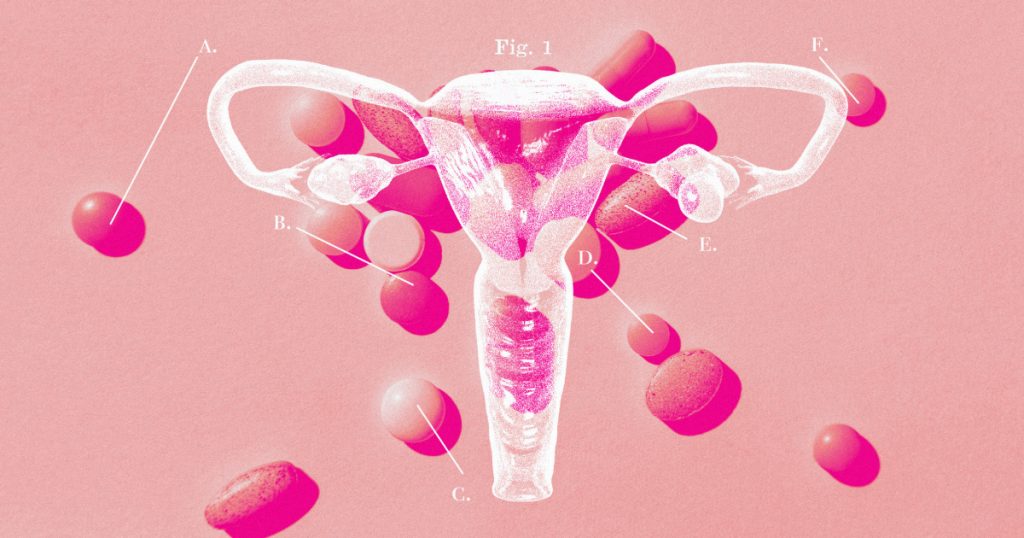Jeni Gutke, a 45-year-old woman from Joliet, Illinois, has polycystic ovary syndrome (PCOS) and takes a variety of medications to cope with the many associated symptoms, including migraines, high blood pressure, diabetes, high cholesterol, anxiety, and depression. Despite the lack of FDA-approved medications specifically for PCOS, Gutke’s daily regimen of 30 pills and an injectable medication reflects the challenges faced by the estimated 5 million women in the U.S. with this condition. PCOS is a complex hormonal disorder, often linked to infertility, irregular periods, weight problems, and other debilitating symptoms, making treatment options limited and often reliant on off-label prescriptions.
PCOS, which has been subject to debate and lacks extensive research, remains poorly understood after nearly a century of disagreements over its definition. The wide range of symptoms experienced by women with PCOS makes it challenging to identify a single treatment that would work for all patients, according to experts like Dr. Heather Huddleston. Many women end up taking off-label medications approved for other conditions to manage their PCOS symptoms, which can create challenges with insurance coverage. Navigating the condition requires a personalized approach to treatment, focusing on addressing root causes rather than individual symptoms, which can vary widely among patients.
Despite the prevalence of PCOS among reproductive-age women in the U.S., the lack of funding for research remains a significant challenge. PCOS ranks low among medical conditions receiving support from the National Institutes of Health, with minimal funding allocated for research in the past and exclusion from recent initiatives focused on women’s health. The underfunding of PCOS research contributes to the limited understanding of the condition and the absence of FDA-approved treatments. Private industry investment in PCOS research is also lacking, with drugmakers showing limited interest in developing new medications for the condition.
The causes and symptoms of PCOS are rooted in hormonal imbalances, leading to a range of issues such as irregular periods, acne, excess hair growth, and metabolic conditions like insulin resistance and obesity. The condition’s complexity makes diagnosis and treatment challenging, as symptoms can vary widely among individuals. Experts like Dr. Andrea Dunaif suggest that PCOS may involve multiple distinct conditions rather than a single syndrome due to genetic differences among patients. For women with PCOS, managing symptoms often involves a combination of lifestyle modifications, medication, and hormonal contraceptives, although there is no known cure for the condition.
Women living with PCOS are increasingly turning to online communities on platforms like TikTok and Instagram to share their experiences, treatment approaches, and connect with others facing similar challenges. The rise of social media has helped women like Candice Bolden, Jeni Gutke, and Tallene Hacatoryan find support, information, and a sense of community in navigating their PCOS journey. Bolden, who initially struggled to get a diagnosis and adequate support for her symptoms, now uses her platform to raise awareness about PCOS and challenge outdated perceptions of the condition as primarily a fertility issue. By sharing their stories and finding support online, women with PCOS are empowering each other and advocating for improved research and treatments for this complex hormonal disorder.


